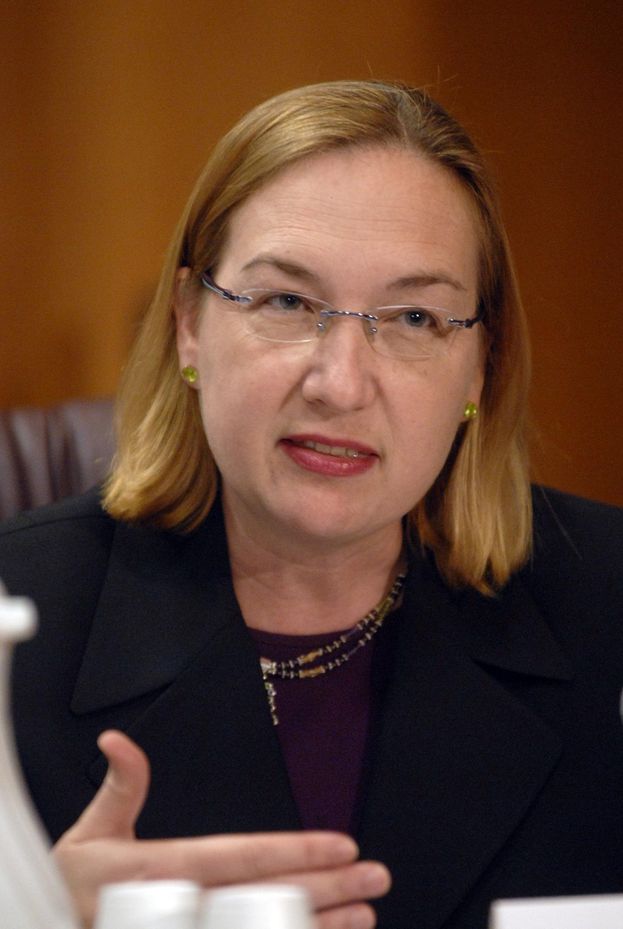The U.S. Department of Justice has raised accusations against Judge Beryl Howell, claiming she has demonstrated “hostility” against President Donald Trump. As a result, the Department has asked for her recusal from a case involving a Democrat-affiliated law firm that played a significant role in the notorious “Steele dossier.” The Justice Department’s request is rooted in the belief that Howell’s alleged bias could potentially influence the outcome of the case.
The Steele dossier, a document compiled by former British spy Christopher Steele, has been a contentious point in American politics since its creation. The dossier contains allegations of misconduct and conspiracy between Trump’s campaign and the Russian government during the 2016 election. The document, however, has been heavily criticized for its unverified claims and its role in sparking the controversial investigation into Russian interference in the 2016 U.S. presidential election.
The law firm in question, Perkins Coie, was instrumental in sponsoring the dossier. The firm, known for its close ties with the Democratic Party, contracted the research firm Fusion GPS, which in turn hired Steele to compile the said dossier. The Justice Department argues that President Trump’s attempt to penalize Perkins Coie is justified, given the firm’s involvement in the controversial dossier.
Judge Beryl Howell, the Chief United States District Judge of the United States District Court for the District of Columbia, has previously blocked the President’s attempts to impose sanctions on Perkins Coie. Her decision to stand in the way of the President’s intentions has been interpreted by the Justice Department as a clear sign of bias against Trump. The Department believes that this alleged partiality could affect the fairness of the proceedings.
The Justice Department’s accusations against Judge Howell are significant, considering her role. As the chief judge, Howell oversees the grand jury involved in special counsel Robert Mueller’s investigation into Russian interference in the 2016 election. She has significant influence over the proceedings and decisions involving the grand jury, which further intensifies the Department’s concerns about potential bias.
The Department’s request for Howell’s recusal is a reflection of the highly polarized political environment in the United States. It raises questions about the impartiality of the judiciary, a cornerstone of the American legal system. The Department’s accusations against Howell suggest that political affiliations may unduly influence legal proceedings, a scenario that could undermine the public’s trust in the justice system.
The Justice Department’s request is not without precedent. Judges have been asked to recuse themselves from cases where there may be conflicts of interest or where their impartiality could be reasonably questioned. However, this usually happens in cases where the judge has a personal or financial connection to the parties involved. In Howell’s case, the Department’s request is based on perceived political bias, a comparatively more subjective and contentious ground for recusal.
The request for recusal has sparked a debate about the standards for judicial recusal and the potential influence of political bias on legal proceedings. Critics argue that the Department’s request is politically motivated, aimed at removing a potential obstacle to the President’s intentions. Supporters, on the other hand, contend that the Department’s concerns are legitimate, given Howell’s actions and the highly charged political context of the case.
The Justice Department’s request for Howell’s recusal touches on broader issues about the intersection of politics and the judiciary. It highlights the delicate balance between maintaining the independence and impartiality of the judiciary and ensuring that justice is administered fairly and without prejudice. The outcome of this request could have far-reaching implications for future cases involving political figures or politically charged issues.
In conclusion, the Justice Department’s accusations against Judge Beryl Howell and subsequent request for her recusal from the Perkins Coie case is a significant development in the ongoing saga surrounding the Steele dossier. It raises important questions about judicial impartiality, the potential influence of politics on the judiciary, and the administration of justice in a highly polarized political environment. The unfolding events will likely have a significant impact on public perception of the justice system and could set a precedent for future cases.









